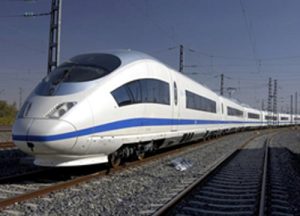COVID 19 Crisis Recovery Facility in India.
PROPOSED FUNDING AMOUNT – USD500 million.
Creating A Coordinated and Responsive Indian Social Protection System (ccrisp).

The objective of the program is to strengthen the capability of the state and the national governments in India to respond to the needs of informal workers through a resilient and coordinated social protection system.
This program is proposed under the COVID-19 Crisis Recovery Facility (the Facility) of the Bank and co-financed with the World Bank (WB) as a development Policy Financing (DPF) under WBs policy on Development Policy Financing (DPF Policy).
The proposed program will provide the Government of India (GoI) with budget support to mitigate the severe adverse social and economic impact of COVID-19.
Specifically, the program supports India’s efforts to modernize its social protection system to serve the risks and needs emerging from the COVID-19 pandemic, rapid urbanization, structural transformations in the labour market and climate change.
Relieving the social and economic distress amongst the most vulnerable groups affected by the COVID 19 pandemic informal workers, migrant workers and returnee migrant workers is at the core of the operation.
ENVIRONMENTAL AND SOCIAL INFORMATION –
The loan will be co-financed with WB as lead co-financier, and the programs environmental and social (ES) risks and impacts have been assessed in accordance with WBs DPF Policy.
AIIBs Environmental and Social Policy (ESP) was designed to apply to investment projects and has no provisions for its application to DPF operations.
Therefore, as permitted by the decision of AIIBs Board of Directors set forth in the Decisions to Support the COVID-19 Crisis Recovery Facility, WBs DPF Policy will apply to this operation in lieu of AIIBs ESP.
This will ensure a harmonized approach to addressing the environmental and social (ES) risks and impacts of the program.
WB has conducted assessments under its DPF Policy to determine whether the proposed operation is likely to
(i) cause significant social consequences and poverty levels (especially on the poor and vulnerable sections of the society), and
(ii) have significant impact on the country’s environment, forests, and natural resources.
Given that mitigating the social and economic distress among the vulnerable groups is at the core of the operation, WB has determined that the proposed interventions are likely to have largely positive social impacts.
The program focuses on directly transferring social protection benefits to women and provides extra weightage to the tribal households in targeting of benefits (due to the constitutional protection accorded to these groups).
The program will provide fast and flexible cash support to address ecological and climate-based vulnerabilities.
The program will also incentivize allocation of resources available to cities based on achievements on air.
